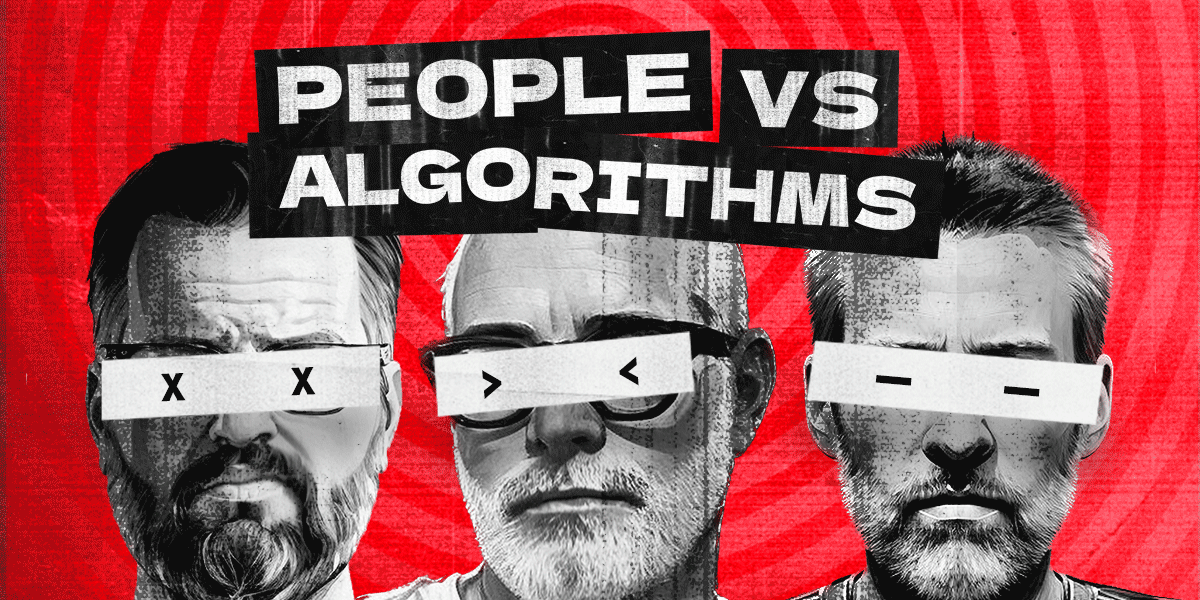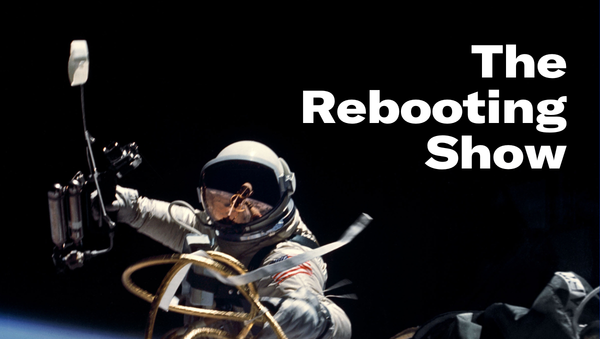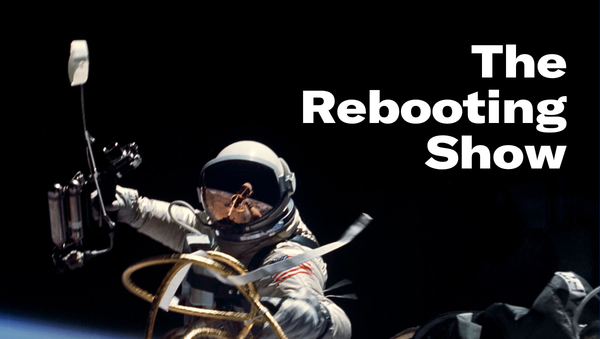Survivors
The cookiepocolypse as Y2K, the mechanical watch theory, and a conversation with Puck’s Lauren Sherman

I’ve been back in New York this week. I had coffee with Berliners. One observed that NYC is actually calmer than she remembered from pre-pandemic. “I think it’s all the weed,” she said.
Mentioned in today's newsletter: Y2k, librarians, mechanical watches, FUD, alternative identifiers, Vettted.ai, Scooby Doo, Columbia j-school, Chris Kimball, blitzscaling, the Affiliate Summit West, cinematic universes, Lauren Sherman, the Beatitudes and The Rebooting's memberships. Highlights:
- Maybe the sky won't fall because of the cookie
- The mechanical watch theory
- The pendulum swings vs workers
- Is commerce/affiliate under threat?
- A conversation with Puck fashion correspondent Lauren Sherman about surviving (and thriving) in journalism


According to Gartner, CMOs are aligning their efforts around one key goal: achieving maximum impact at minimal cost. Efficient growth demands strategic budget allocation and data-driven campaigns and technologies. This is where attention metrics play a vital role: providing valuable insights into ad effectiveness and efficiency.
At a time when proving media value is paramount, Onyx by Outbrain™ stands out by predicting high attention moments and delivering elegant creative experiences that elevate your brand.
The cookiepocolypse is shaping up as Y2K 2.0. Back in late 1999, a strange panic set into society that the world - or at the very least, ATMs – would cease to function on Jan 1, 2000 because of computer glitches. It led to a cottage industry springing up to address the existential threat. And then… nothing happened.
I’m starting to get similar vibes about the disappearance of the third-party cookie. Its demise has been greatly exaggerated going back to before the pandemic. Publishing executives without big subscriptions programs are realists about the limits of collecting email addresses for targeting. Authentication is mostly a pipe dream for lifestyle and entertainment sites. It’s easy to just repeat “first-party data” as the answer, but the reality, as one exec noted, is even the most popular sports columnist will be lonely behind a reg wall. Inevitably, the 10% who do authenticate will serve as a pool for modeling the rest of audiences.
One agency executive explained that targeting isn’t the issue. That will be solved, and the idea that marketers only want one-to-one targeting will fade. Instead, the biggest issue will lie in measurement. Marketers don’t want new measurement statistics because it won’t go over well with their bosses. Meanwhile, the people selling billboards are unscathed.
The likely result: a short-term dip, followed by normalization as everyone in the ecosystem adapts and figures out how the many alternative identifiers can fill the gaps. Beyond the big tech platforms, the chaos and complexity will have one certain winner: agencies, which are adept at monetizing FUD.
Hanging over all of this is further uncertainty that the deprecation will even happen. Google has mounting legal challenges in the U.S. and Europe, and there is far more scrutiny on anticompetitive practices from tech companies that are usually dressed up as some kind of fight for the consumer that just happens to benefit the tech companies and lock in their advantages. Don't be surprised if the full deprecation gets kicked into next year.
Media businesses need to operate like mechanical watches. The Mechanical Watch Framework emerged at a private dinner The Rebooting held last night in partnership with VideoElephant. I was struck by how executives there talked more about their events strategies than ad strategies. Putting ads on pages isn’t going away; it will remain central to many revenue strategies, particularly those in more protected niche areas like business.
The Mechanical Watch Framework is rather than view different revenue approaches in isolation, the challenge for publishers is to get 7-10 different flywheel working at once, and in unison. And it means finding pockets of opportunity. One publisher found an inordinate number of librarians in their audience, sparking a new hunt for revenue from library subscriptions. Whatever it takes.
The prominence of the events gears on the publishing watch – really committed to this one – is striking. Sure, many would prefer to just go back to selling ads on pages, but events done well can fetch 50%-plus margins, even if anyone talking up success in events is legally obligated to follow with: “but they don’t scale.” As one exec said, everyone has to be realistic about what their ceiling is. RIP blitzscaling and owning the waterfront.
Instead, publishers will build discrete products for specific audience segments. Too often publishing has grasped for one-size-fits-all models when the reality is there is never a singular "audience." There are a variety of people who have different needs that publishers need to understand and create products that address them.
Forget the WFH. One revenue-side exec posted a midlevel manager role recently. Normally those postings draw about 50 applications. This one got 5x that. The cuts happening across media are not just journalists, it’s just that journalists treat journalism jobs as sacrosanct vs the other roles in the organization that actually make up the majority of the people.
I spoke to a class of Columbia journalism students the other day. They were worried about entering not just this job market but this field. I gave them advice they not want to have heard but needed to hear: If they want a long career in this field, they should become as close to an expert in a field, and the more complicated the area the better. Report for a trade publication and master an arcane area of the economy. Also: Don’t gravitate to middle management positions that are removed from the actual making of the product (or selling the product).
On the other side, I heard more talk about the end to the “Substack wars.” There’s less fear of top talent en masse decamping to take the solo path, but the underlying problem of retaining top talent remains. One mini-trend I see emerging that I’ll cover in more detail next week (for members, sorry Troy): Independent operators building their own “cinematic universes,” which see them operate mostly independent but also have partnership deals with larger organizations. Beyond the top rung of brand names, publishers will need to get used to compensating the most valuable people differently. They do it in sales; they’ll adapt.
Commerce is the next shoe to drop. The publishing industry is not meant to have nice things. Anytime someone finds a nicely profitable area, the industry floods into it and eventually the opportunity narrows. I’ve found so-called commerce strategies divisive. One person will talk to how different the mood was at Affiliate Summit West vs a typical publishing confab. But in the pivot to realism, people know good times don’t last.
The problem with commerce is that it’s really affiliate, and affiliate is really SEO as most major publishers practice it. Pumping out gift guides, or contracting with a vendor to do so, isn’t the same as building your own line of cookware and mastering a DTC business like Milk Street's Chris Kimball. One veteran exec – seasoned, even – ticked through the current and looming challenges:
- Amazon built the affiliate industry and it’s pulling back as evidenced by elimination of compensation for “halo sales” (the full basket, not just the item clicked)
- Retail media is going to eat up swathes of affiliate spending.
- AI chat bots will take time to catch on broadly, but their entire purpose is to avoid the need of such middle layers people need to go through to get things done on the internet. Just look at Vetted.ai. Ruh-roh.

Life after the cookie. The drawn-out death of third-party cookies has been looming over publishers since 2020. Now that it’s actually becoming a reality, it’s clear that publishers need a plan. So how can they thrive without cookies? EX.CO’s latest blog post explores tangible solutions for the path forward.

Puck’s fashion correspondent Lauren Sherman is a journalism survivor, making her way in a competitive field in a competitive area within it. Between freelancing and staff jobs at brands like Business of Fashion prior to expanding Puck into fashion and beauty with its Line Sheet newsletter, Lauren’s established herself as an authority at the intersection of fashion and business. It’s the last part that I find critical when j-school students and people early career ask about paths. Not everyone is interested in business, but glamor areas like fashion are going to attract casuals and those who start life post-economic.
And then, as Lauren puts it, the key is persistence. It’s cliched, but also not that much more complicated than that. There will be fewer jobs in this field as traditionally defined – big news organizations – and people who run the gauntlet and emerge on the other side with expertise and a reputation will be fine. As Lauren says, she doesn’t much worry about her place in the field at this point. The challenge will be in training and early-career opportunities.
The last phase of digital media did a generation a disservice by dispatching them into the content mines to aggregate, re-aggregate and hunt for bad tweets to embed in 219-word posts. There’s a need for something like an apprenticeship program at independent media to provide pathways outside of getting a job at these big organizations that are shrinking. And yes, people should go work at trade publications (and their successors) because now is not the time to be snobby about things. The specialists shall inherit the earth, etc.
Listen on Apple | Spotify | other podcast platforms
Reminder: Sign up for access to all of The Rebooting’s content, regular community events like live podcasts and expert workshops.




